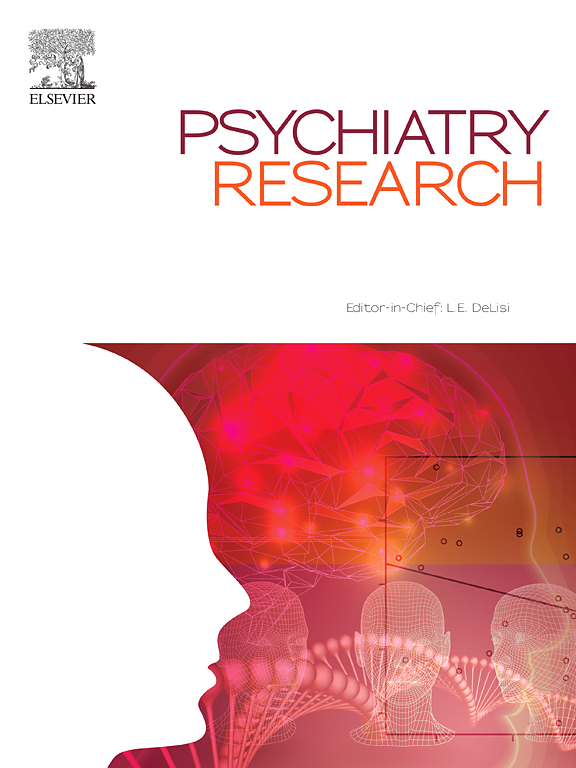Mental health of prerelease incarcerated women
IF 4.2
2区 医学
Q1 PSYCHIATRY
引用次数: 0
Abstract
Background
The mental health of incarcerated women is particularly poor, yet little is known about their condition during the prerelease period. This critical transition is shaped by stressors related to incarceration and the challenges of reintegration, raising important concerns. Notably, the release phase that follows is characterized by risks of rehospitalization, reincarceration and suicide among individuals with psychiatric disorders and/or substance use disorders (SUDs). The aim of this study was to estimate the prevalence of psychiatric disorders, SUDs and dual diagnoses (DDs, i.e., the combination of severe psychiatric disorder and SUD) among incarcerated women scheduled to be released soon.
Methods
We conducted a cross-sectional survey from April 2021 to September 2022 across 4 women's correctional facilities in Northern France. This study included all adult women identified by the prison administration as having a scheduled release date within 30 days. Each participant was interviewed via a structured interviewer-administered questionnaire, which included the Mini International Neuropsychiatric Interview.
Findings
Among the 248 women identified by the prison administration, 127 were ultimately enrolled in this study (mean age 36.3 years). We found high prevalences of psychiatric disorders (of the participants, 48.0% had current depressive episodes, 28.3% had current generalized anxiety disorder, and 26.8% had current posttraumatic stress disorder), SUDs (59.1%) and DDs (38.6%).
Interpretation
The alarming prevalences of psychiatric disorders, SUDs, and DDs among our sample highlight the urgent need for integrated care that bridges incarceration and postrelease psychiatric settings for incarcerated women. Combining psychiatric, addiction, and social support services is essential for addressing the complex mental health needs and improving reintegration outcomes in this population.
Funding
This study was funded by the French Direction Générale la Santé – Directorate-General of Health (DGS) and Santé Publique France – Public Health France (SPF).
求助全文
约1分钟内获得全文
求助全文
来源期刊

Psychiatry Research
医学-精神病学
CiteScore
17.40
自引率
1.80%
发文量
527
审稿时长
57 days
期刊介绍:
Psychiatry Research offers swift publication of comprehensive research reports and reviews within the field of psychiatry.
The scope of the journal encompasses:
Biochemical, physiological, neuroanatomic, genetic, neurocognitive, and psychosocial determinants of psychiatric disorders.
Diagnostic assessments of psychiatric disorders.
Evaluations that pursue hypotheses about the cause or causes of psychiatric diseases.
Evaluations of pharmacologic and non-pharmacologic psychiatric treatments.
Basic neuroscience studies related to animal or neurochemical models for psychiatric disorders.
Methodological advances, such as instrumentation, clinical scales, and assays directly applicable to psychiatric research.
 求助内容:
求助内容: 应助结果提醒方式:
应助结果提醒方式:


